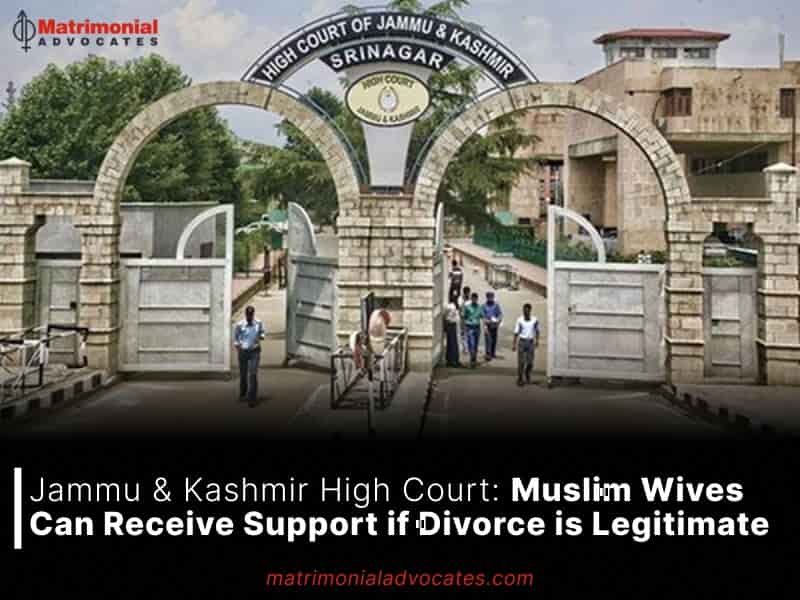
The Jammu and Kashmir High Court has issued a directive mandating the provision of interim financial maintenance by a Muslim petitioner to their spouse until such time as the substantiation of the asserted divorce occurs. Despite the inherent absence of a specific provision for post-divorce maintenance in Muslim personal law, Justice Rajnesh Oswal underscored the inherent inequity in subjecting the wife to financial deprivation in the absence of conclusive evidence affirming the termination of the marital bond.
The court, drawing attention to the incongruity with the objectives enshrined in Section 488 of the Criminal Procedure Code, a provision analogous to Section 125 of the CrPC, which seeks to provide temporary financial relief to women embroiled in marital discord, articulated the discordance in withholding maintenance. Given the petitioner’s inconsistent statements concerning the divorce and the wife’s voluntary departure, the High Court determined the insufficiency in establishing the dissolution of the marital union. Consequently, the court affirmed the trial court’s decision, imposing a monthly financial obligation of Rs. 7000 upon the petitioner in favor of respondent No.1 (wife).
In recognizing the potential miscarriage of justice attendant to the denial of maintenance predicated solely on unsubstantiated divorce claims, the court reiterated the imperative of aligning such determinations with the guiding principles encapsulated in Section 488 of the Criminal Procedure Code.
“It shall defeat the whole purpose of Section 488 of Cr. P. C. Taking into consideration the object of the said provision, the concept of interim maintenance was evolved by the Supreme Court in ‘Savitri v. Govind Singh Rawat [(1985)4SCC 337]”.
Given the described circumstances, the Court found no evidence of misuse or improper conduct in legal procedures that would warrant the Court’s intervention. As a result, the plea was dismissed.





